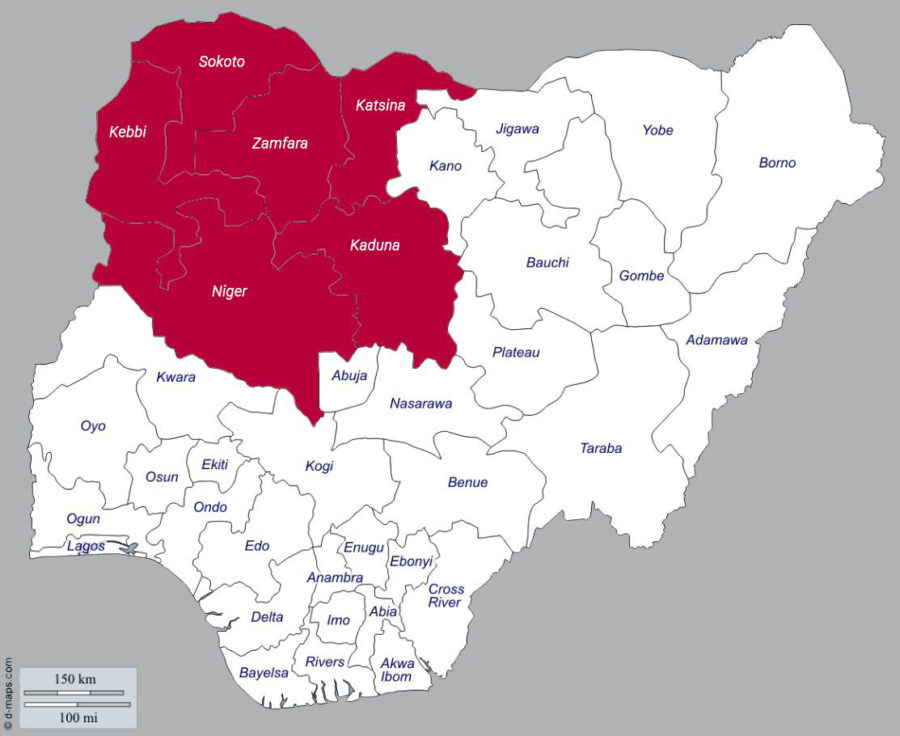North West
Region Dec 29, 2024 Last Modified:Jan 03, 2025

Table of Contents
History and Overview of Nigeria’s North West Region
Introduction
Nigeria’s North West region is a vibrant area with a rich history, diverse cultures, and significant contributions to the nation’s development. Known for its historical empires, trade routes, and cultural heritage, the region is a key part of Nigeria’s identity. This article delves into the history, cultural makeup, and modern relevance of the North West.
Geographical and Demographic Context
The North West region is one of Nigeria’s six geopolitical zones, encompassing seven states: Kaduna, Kano, Katsina, Kebbi, Sokoto, Jigawa, and Zamfara. It is home to millions of people, predominantly from the Hausa and Fulani ethnic groups, alongside numerous minority communities. The region is characterized by its arid and semi-arid landscapes, with the River Niger serving as a crucial geographical feature.
Historical Background
The Pre-Colonial Era
Before colonial rule, the North West region was dominated by powerful empires and city-states. The Sokoto Caliphate, established in 1804 by Usman dan Fodio during the Fulani Jihad, is one of the most notable entities. It was an Islamic empire that united various Hausa city-states under Sharia law, promoting education, trade, and governance. Kano and Katsina were renowned for their roles as centers of commerce and Islamic scholarship, attracting traders and scholars from across Africa and beyond.
Colonial Period
The advent of British colonial rule in the late 19th and early 20th centuries marked a significant shift. The Sokoto Caliphate was incorporated into the Northern Protectorate, and later into Nigeria. The British adopted an indirect rule system, leveraging the existing emirate structures to administer the region. This period saw the introduction of modern infrastructure, including railways and schools, albeit with limited penetration in rural areas.
Post-Independence
After Nigeria gained independence in 1960, the North West region played a pivotal role in national politics. Leaders like Sir Ahmadu Bello, the Sardauna of Sokoto, emerged as prominent figures, advocating for Northern unity and development. The region’s political influence remains significant in contemporary Nigeria.
Cultural Heritage
The North West region boasts a rich cultural tapestry, deeply rooted in Hausa and Fulani traditions. Festivals such as the Durbar, celebrated during Eid, showcase the region’s equestrian culture and royal heritage. Traditional music, arts, and crafts, including leatherwork and textiles, are integral to the local economy and identity.
Islam is the dominant religion, influencing social norms, education, and governance. The region is also home to diverse cuisines, with dishes like tuwo shinkafa, fura da nono, and kilishi being widely popular.
Modern-Day Relevance
Today, the North West is a critical economic and political hub in Nigeria. Kano, the region’s largest city, is a major commercial center, while Kaduna is known for its industrial and educational institutions. Agriculture remains the backbone of the economy, with crops like millet, sorghum, and groundnuts being widely cultivated. The region also has significant mineral resources, including gold and limestone.
However, the North West faces challenges such as insecurity, poverty, and inadequate infrastructure. Banditry and communal conflicts have disrupted lives and livelihoods, prompting calls for enhanced governance and security measures.
Conclusion
The North West region of Nigeria is a land of historical significance, cultural richness, and untapped potential. Its contributions to Nigeria’s history, culture, and economy are undeniable. As the region addresses its contemporary challenges, it continues to hold a central place in the narrative of Nigeria’s past, present, and future.
